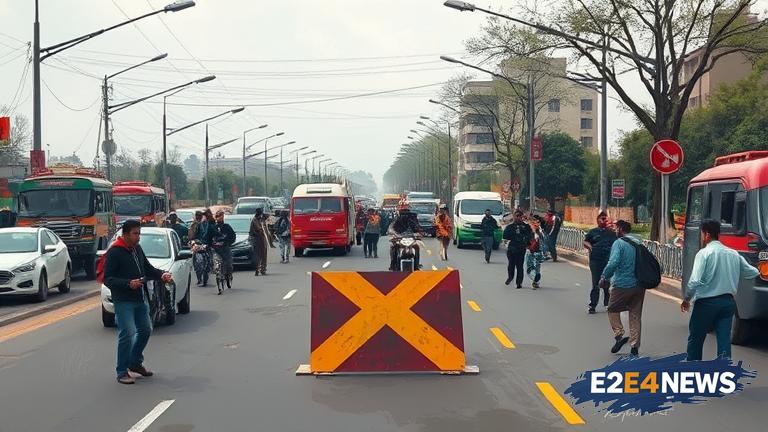The Islamabad High Court has intervened in the ongoing road blockade in Islamabad, ordering the government to engage in dialogue with the Baloch Youth Council to find a resolution. The blockade, which has been in place for several days, has caused significant disruptions to traffic and daily life in the city. The court’s decision comes after a petition was filed by a citizen, highlighting the difficulties faced by commuters and residents due to the blockade. The Baloch Youth Council has been protesting against the government’s alleged neglect of the Balochistan province and demanding greater representation and rights for the region. The council has blocked the main highway connecting Islamabad to other parts of the country, causing long queues of vehicles and stranded passengers. The government has been criticized for its handling of the situation, with many accusing it of failing to address the grievances of the Baloch people. The court’s order is seen as a significant development, as it acknowledges the need for dialogue and negotiation to resolve the crisis. The government has been directed to form a committee to engage with the Baloch Youth Council and find a solution to the blockade. The committee will comprise representatives from the government, the Baloch Youth Council, and other stakeholders. The court has also ordered the government to provide a report on the progress of the dialogue within a week. The Baloch Youth Council has welcomed the court’s decision, stating that it is willing to engage in dialogue with the government. However, the council has also warned that it will continue to protest until its demands are met. The situation remains tense, with many fearing that the blockade could lead to further unrest and violence. The government has been accused of using heavy-handed tactics to suppress the protest, including the use of tear gas and baton charges. The Baloch Youth Council has denied allegations that it is being supported by external forces, stating that its movement is indigenous and driven by the grievances of the Baloch people. The blockade has also highlighted the deeper issues of marginalization and exclusion faced by the Baloch people. The region has long been neglected by the government, with many Baloch people feeling that their rights and interests are being ignored. The protest has sparked a wider debate about the need for greater representation and autonomy for the Baloch people. Many are calling for the government to address the root causes of the protest, including poverty, unemployment, and lack of access to education and healthcare. The international community has also been urged to take notice of the situation, with many human rights organizations expressing concern about the use of force against protesters. The United Nations has called for calm and restraint, urging all parties to engage in dialogue and find a peaceful resolution to the crisis. As the situation continues to unfold, many are watching with bated breath, hoping that a resolution can be found soon. The court’s order is a significant step towards finding a solution, but it remains to be seen whether the government and the Baloch Youth Council can find common ground. The people of Islamabad and the wider region are eagerly awaiting a resolution, as the blockade continues to cause hardship and disruption to daily life.





